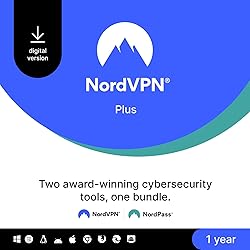How VPNs Work: Simple Explanation for Beginners
Virtual Private Networks (VPNs) are essential tools in today’s digital landscape, yet they often sound more complex than they really are. If you’re new to cybersecurity or just want to better understand how VPNs work, you’re in the right place. This guide will break down the basics in a way that’s easy to grasp, without technical jargon.
—
What is a VPN?
A VPN, or Virtual Private Network, is a technology that helps protect your online privacy and security. It does this by creating a secure, encrypted tunnel between your device (such as a computer, tablet, or smartphone) and the internet. All your online activities are sent through this tunnel, preventing others—like hackers, your internet service provider (ISP), or even public Wi-Fi snoopers—from monitoring what you do online.
—
How VPNs Work in Simple Terms
To understand how VPNs work, imagine sending a letter through regular mail: anyone who intercepts the envelope can read the contents. Now imagine putting your letter inside a locked, tamper-proof box before mailing it. Only the person with the right key can unlock and read it. A VPN acts like that secure box.
When you use the internet normally, your data travels directly from your device to the website or service you’re using. Your real location and data can be exposed along the way. However, when you enable a VPN, it does two main things:
1. Encryption: The VPN encrypts (scrambles) your data so no one can read it while it’s transferring. It’s like turning your message into a secret code.
2. Anonymization: The VPN disguises your real IP address by routing your traffic through its own servers. Instead of your physical location, the websites you visit will see the location of the VPN server.
—
Benefits of VPNs for Everyday Users
VPNs aren’t just for tech enthusiasts or businesses—they offer significant advantages for everyone:
– Privacy: VPNs hide your real IP address and help keep your online identity anonymous.
– Security: Encrypting your data protects you from hackers, especially on public Wi-Fi, like in cafes or airports.
– Unrestricted Access: VPNs can help access content or websites that may be blocked or restricted in your region.
– Prevent Tracking: Your ISP and websites are less able to track your browsing habits.
—
Understanding the Components: How VPNs Work on a Technical Level
Let’s demystify the technical side just a little, in simple terms:
– VPN Client: This is the app or software you install on your device.
– VPN Server: Located somewhere else (possibly in another country), this server acts as the middleman between your device and the wider internet.
– Encrypted Tunnel: The secure path your data travels through.
– Authentication: Before the tunnel is set up, your VPN client and the server verify each other to ensure security.
When you launch your VPN client and connect, it creates the encrypted tunnel to the VPN server. From then on, any website or internet service you access thinks you’re connecting from the server’s location, not your own.
—
Common Uses of VPNs
– Protecting Data on Public Wi-Fi: Public Wi-Fi is convenient but not always safe. VPNs shield your information from prying eyes.
– Accessing Region-Locked Content: Want to watch shows only available in another country? VPNs can make it appear as if you’re browsing from that location.
– Bypassing Censorship: In some places, certain websites are blocked. VPNs help circumvent those restrictions.
– Improving Online Privacy: Search engines and advertisers love tracking your activity—a VPN gives you more control over your data.
—
Are VPNs Completely Foolproof?
While VPNs greatly enhance your privacy and security, they aren’t a magic solution. Some VPN services may keep logs of user activity, and advanced attackers can still potentially breach weaker VPN protections. Always choose reputable providers, preferably ones with a no-logs policy and strong encryption standards.
—
Conclusion
Understanding how VPNs work doesn’t have to be intimidating. By encrypting your data and masking your real location, VPNs offer a straightforward way to stay secure and private online. Whether you’re safeguarding sensitive information on public networks or accessing your favorite content abroad, using a VPN is a simple, effective step in any cybersecurity strategy.


